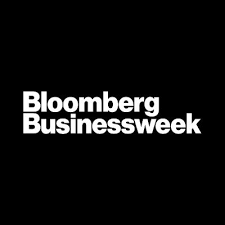
Informed i’s Weekly Business Insights
Extractive summaries and key takeaways from the articles carefully curated from TOP TEN BUSINESS MAGAZINES to promote informed business decision-making | Since 2017 | Week 373, November 1-7, 2024 | Archive

Who Thinks China’s Not an Economic Powerhouse? China
By Dan Murtaugh et al., | Bloomberg Businessweek | October 2024 Issue
Extractive Summary of the Article | Read | Listen
3 key takeaways from the article
- How can the world’s second-largest economy be simultaneously “developed”—at the cutting edge of science and technology—yet still be officially classed as “developing”—allowed concessions on emissions and access to global funds? A point of contention that will loom over November’s United Nations climate summit in Baku, Azerbaijan.
- China likes to think of itself as a hybrid superpower, a compromise description that serves its diplomatic goals. In climate finance, though, the position is untenable. If a nation is considered developed, it’s expected to pay into a $100 billion-a-year UN pot. Developing nations not only have no such obligation but can also use the money to mitigate the impact of hotter summers and more frequent storms.
- US and European leaders will push China to join their ranks and begin paying up. But Beijing is set on defending its developing-nation status, which allows it to spend formidable amounts of money to advance global climate goals but on its own terms.
(Copyright lies with the publisher)
Topics: Environment, Global Warming, China, USA, Developed Countries, Developing Counties
Click for the extractive summary of the articleHow can the world’s second-largest economy be simultaneously “developed”—at the cutting edge of science and technology—yet still be officially classed as “developing”—allowed concessions on emissions and access to global funds? A point of contention that will loom over November’s United Nations climate summit in Baku, Azerbaijan.
China likes to think of itself as a hybrid superpower, a compromise description that serves its diplomatic goals. In climate finance, though, the position is untenable. If a nation is considered developed, it’s expected to pay into a $100 billion-a-year UN pot. For the US, this meant an estimated $9.5 billion in 2023. Developing nations not only have no such obligation but can also use the money to mitigate the impact of hotter summers and more frequent storms.
US and European leaders will push for the country to join their ranks and begin paying up. But Beijing is set on defending its developing-nation status, which allows it to spend formidable amounts of money to advance global climate goals but on its own terms.
The case for classifying the economic and political powerhouse as developed is compelling. China is the biggest source of greenhouse gas emissions. It has more steel mills and oil refineries than any other nation, an expanding nuclear weapons arsenal and, as Hoekstra noted, a major space exploration program. The US House of Representatives last year voted unanimously that China should no longer be allowed to call itself developing.
The case for China remaining, on paper, as a developing country is no less persuasive, though. Despite steady increases in recent decades, its median income still falls below the threshold for developed countries. While the glittering skylines of megacities such as Shanghai and Shenzhen are home to some of the world’s wealthiest people, the country still has hundreds of millions living below the poverty line. But the real disagreement here isn’t economic—it’s political.
Western nations will struggle to get China to edge toward adding to the global piggy bank. Climate diplomats who’ve spoken to their Beijing counterparts this year have said the country will not shift its position. Instead, Chinese envoys offer commitments that the country won’t draw from the fund, leaving money for poorer countries, and say it will boost its climate financing through other channels. “Instead of putting money into this big pot that it has little control over, it would rather spend the money in a way that it has a lot more say in,” says Yao Zhe, global policy adviser for Greenpeace East Asia in Beijing.
But that leaves China to figure out a way to persuade wealthy nations to raise the funding target—without its help. To get there, Beijing may need to prove it’s paying its fair share in its own way. According to one research China allocated poorer nations about $45 billion of funds that could be strictly defined as climate finance over the decade to 2022. That’s about 6% of the total mobilized by developed economies. On a bi- and multilateral basis, its financing was on par with the UK’s and just behind that of France, Germany, Japan and the US.
It’s true that China also invests heavily overseas in areas that aren’t traditionally considered climate finance but still play a part in the energy transition. Those investments have helped put China on the verge of peak emissions more than half a decade before its own target.
show less